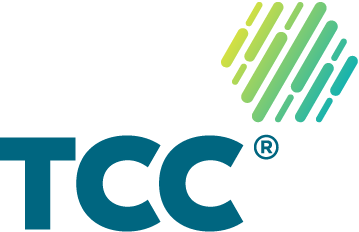The FCA’s Retirement Income Advice survey: what firms need to know
Citywire recently revealed that the FCA has issued a new in-depth survey to around 1,300 firms to gain a better understanding of their approach to assessing and reviewing key risk indicators (KRIs) for retirement income advice.
The regulator had originally intended to review the retirement advice market in 2020 before plans were shelved as a result of the COVID pandemic. However, the FCA is now pushing ahead with the research, having again highlighted retirement advice as a regulatory priority in its Portfolio Strategy letter back in December 2022.
It could be argued that a deep dive into this intrinsically higher-risk market is more crucial than ever in the current climate, as consumers face the ongoing cost-of-living crisis and rising interest rates.
Indeed, whilst these financial challenges are unfortunately affecting a wide cross-section of society, they’re often felt particularly keenly by those approaching or already in retirement – where opportunities to replace income and capital are seemingly more limited.
It’s worth noting that the FCA acknowledges a degree of overlap between the need for higher customer care standards across the retirement advice sphere and the work firms are already doing towards the Consumer Duty. For example, with only weeks to go until the implementation deadline, the regulator expects firms will have already re-evaluated their fee structures to ensure they offer fair value.
What issues are covered in the FCA’s Retirement Income Advice survey?
Firms that have received the survey will be acquainted with the depth of information required across its 87 questions. However, respondents should bear in mind that – even on the questions that simply require a ‘Yes’ or ‘No’ – it’s vital to also have available the documentary evidence to support your answer.
“Even on the questions that simply require a ‘Yes’ or ‘No’ - it’s vital to also have available the documentary evidence to support your answer.
”
For firms not included in the survey, here’s a sample of the areas covered by the questions included in the survey – which should serve as a useful reference when thinking about your internal processes and record-keeping policies:
- Do you offer all forms of decumulation advice (including later life lending, retirement income from pensions and other sources)? If no and you plan to introduce, e.g. for equity release, is your due diligence on the firm sufficient?
- Have you completed your target market assessments to demonstrate that clients meet the market intended by the product provider?
- Can you easily identify the clients in decumulation (including those in the high net worth/sophisticated client categories)?
- Is your vulnerable client process clear and practical for initial and ongoing advice? Does it make reasonable adjustments to allow more time, larger print letters or family engagement?
- Can you identify the minimum, median and maximum fees charged for initial and ongoing advice – and have these been assessed for fair value?
- Does your choice of platform vary based on client needs (and how frequently do you reassess them)?
- If you outsource your attitude to risk (ATR) profiler or other services, do you have a diary system to ensure they’re regularly reviewed to ensure they remain appropriate?
- Are you able to evidence you’ve advised the client on sustainable withdrawal levels? (Note: failing to do so could been seen as a failure to avoid foreseeable harm to the consumer)
- Do you utilise cash flow modelling as a visual aid to show the consumer how withdrawals’ impact on their capital? If they can’t see this, how are you meeting the Consumer Duty’s Consumer Understanding and communications obligations?
- Do you proceed to give advice if a client declines to provide information? And if so, can you demonstrate there’s no foreseeable harm to the consumer resulting from these data gaps?
- What percentage of files do you review for quality assurance purposes and competence sign off? Are these enough? Do you use an independent firm for this purpose and evidence any remedial action you take where necessary?
How should firms respond?
Though comprehensive in its scope, this survey is just the first step on the FCA’s mission to improve outcomes within the retirement income advice market.
And as the regulator analyses the results, it may decide to conduct further thematic work – for example, a wider survey or requests for file submissions to assess the quality of firms’ advice more closely.
“Now’s the time to get ahead of the curve and take action to confirm your retirement income advice process is still fit for purpose in an era of new, more stringent standards and increased regulatory scrutiny.
”
At TCC, our team of former regulators and industry practitioners can analyse your existing policies to identify any gaps or inefficiencies lie – and let you know exactly where changes or improvements need making to ensure you’re meeting regulatory expectations.
Get in touch
Speak to one of our experts today.

